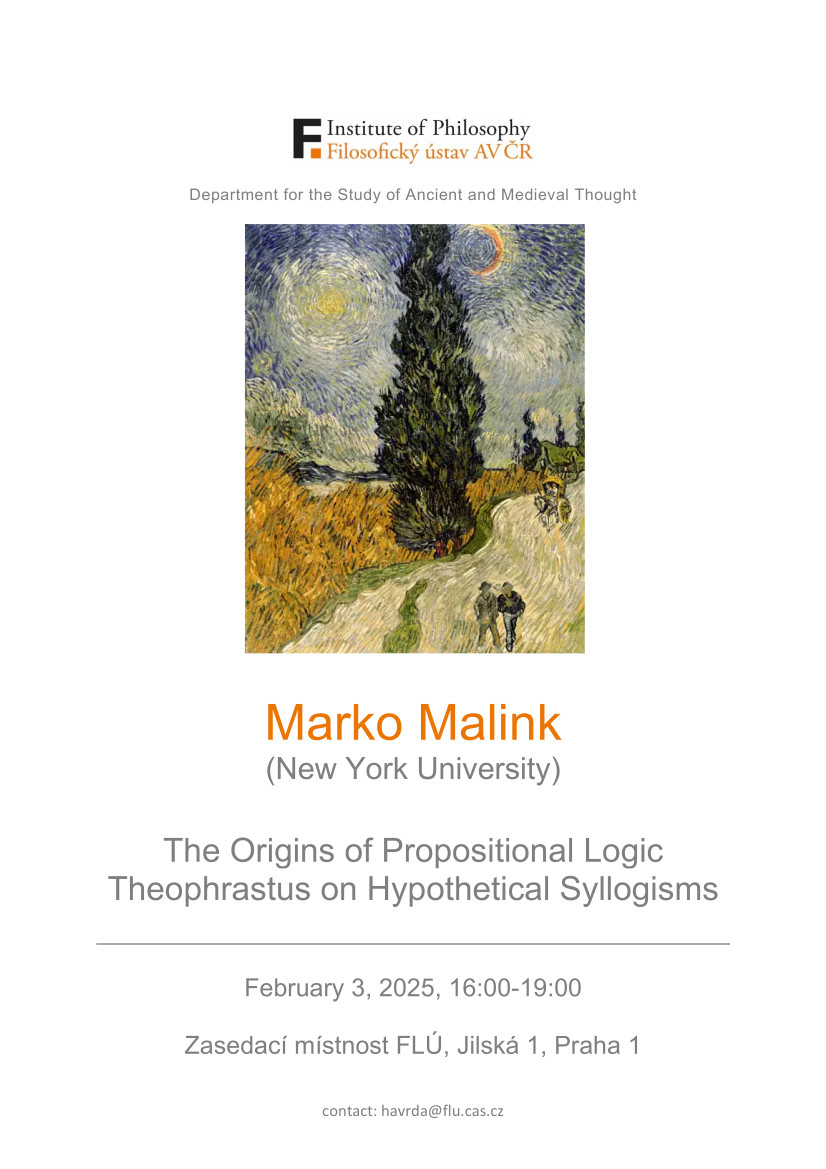Poster

Abstract
Marko Malink (New York University)
The Origins of Propositional Logic: Theophrastus on Hypothetical Syllogisms
Theophrastus, Aristotle's pupil and eventual successor as head of the Peripatos, developed a theory of hypothetical syllogisms in which he sought to reduce various modes of propositional reasoning to categorical syllogisms. Jonathan Barnes has argued that Theophrastus' attempted reduction of propositional to categorical logic is incoherent and "doomed to failure". Others have gone still further, denying that Theophrastus' hypothetical syllogistic constitutes any sort of contribution to the study of propositional logic at all. The present paper offers, in place of such negative assessments, an alternative view of what we shall argue are, in fact, significant and noteworthy achievements on Theophrastus' part in the field of propositional logic. We reconstruct Theophrastus' calculus and show that it gives rise to a coherent and natural system of propositional logic, namely, the first-degree fragment of intensional linear logic. This system captures exactly the early Peripatetic theories of wholly and mixed hypothetical syllogisms. Theophrastus' calculus also underwrites Aristotle’s rule of reductio ad impossibile and his commitment to the connexive law that no proposition entails its own negation. This paper is joint work with Anubav Vasudevan (University of Chicago).